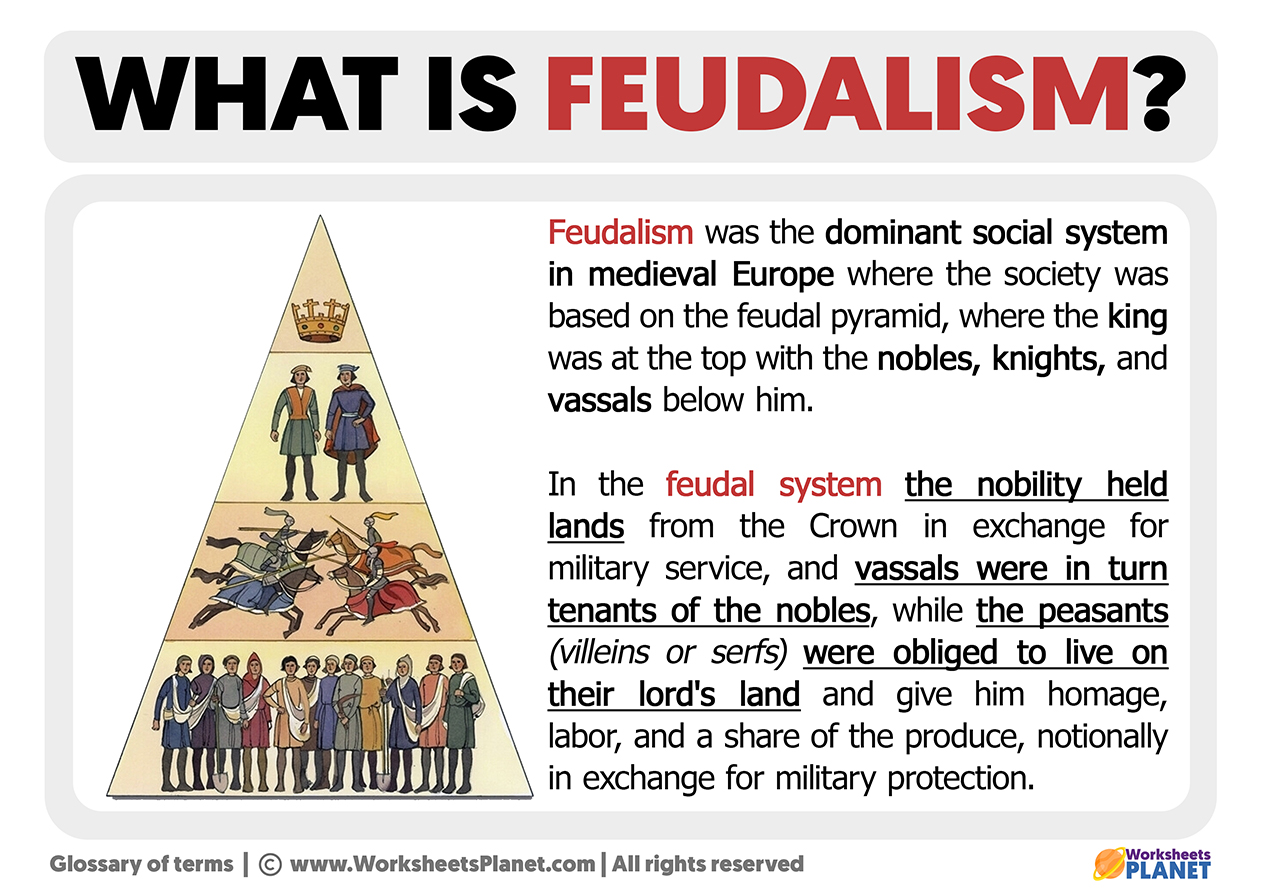Feudalism was a social system that arose in the Frankish kingdom in the High Middle Ages and spread through Western Europe during the High Middle Ages (between the 11th and 13th centuries).

From an economic point of view, it was a land tenure government that favored the rural nobility and promoted serfdom. From a political view, it meant a distribution of power in favor of feudal lords with local and regional authority.
Feudal relations were contracts of mutual obligations between free men: a lord and a vassal. The lord granted protection and lands (called “fiefs”) to a vassal in exchange for loyalty and military assistance (or other benefits). The kings had their vassals who, at the same time, could be lords of other vassals, and thus a pyramid of distribution of lands and obligations was formed that involved a good part of society.
In the feudal system, peasants were especially important since the socioeconomic base was rural. On the one hand, serfs were tied to the land they did not own and had to pay rent to a lord. A land ceded as a fief always included the serfs who worked it. On the other hand, free peasants had their land but could be forced to pay fees or taxes to a lord with jurisdictional power.
The term “feudalism” is also used by some historians to characterize other historical experiences, such as China during the Zhou dynasty, Japan during the shogunate eras, and parts of Eastern Europe at various stages of history.

